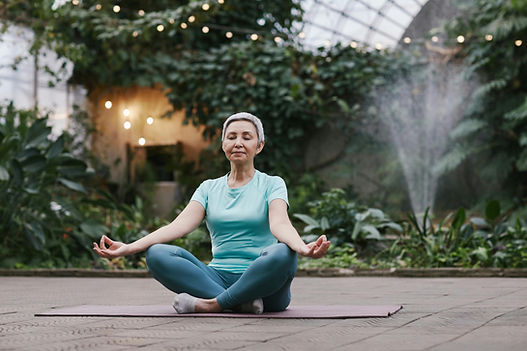
Mindfulness
Embracing the Present Moment
Mindfulness is the practice of bringing one's full attention to the present moment, cultivating an awareness of thoughts, feelings, sensations, and the environment without judgment. It's about being fully engaged with whatever we're doing, whether it's as simple as breathing or as complex as navigating a difficult conversation.
The roots of mindfulness trace back to ancient meditation practices, particularly in Buddhist traditions, but in recent years, it has been embraced widely in secular contexts for its mental health benefits. At its core, mindfulness involves paying attention on purpose, in the present moment, and without getting lost in thoughts about the past or future.

Benefits of Mindfulness
Practicing mindfulness has been shown to reduce stress, improve focus, and enhance emotional regulation. By staying present, we can better manage our reactions to life's challenges, responding with calm and clarity rather than being overwhelmed by anxiety or negative emotions.
Mindfulness also promotes a greater sense of self-awareness. Through regular practice, we learn to observe our thoughts and feelings without being swept away by them. This awareness allows us to break free from habitual patterns of thinking and behavior that may not serve us well, leading to more intentional and fulfilling choices.

How to Practice Mindfulness
Mindfulness can be practiced in various ways, from formal meditation sessions to informal practices integrated into daily life. Simple techniques like focusing on the breath, performing a body scan, or practicing mindful walking can help anchor us in the present moment.
Mindful Breathing
One of the simplest forms of mindfulness is focusing on the breath. This involves sitting quietly, breathing naturally, and paying close attention to the sensation of the breath as it enters and leaves the body.
Body Scan
This practice involves mentally scanning the body from head to toe, noticing any areas of tension or discomfort, and bringing awareness to each part of the body.
Mindful Walking
Walking mindfully means walking slowly and deliberately, paying attention to the sensations of each step, the movement of the body, and the surrounding environment.
Mindful Eating
Eating mindfully involves savoring each bite, paying attention to the taste, texture, and smell of the food, and noticing the body's hunger and fullness cues.
Mindfulness in Everyday Life

Mindfulness is not limited to meditation; it can be woven into the fabric of daily life. Whether it’s being fully present during a conversation, taking a moment to appreciate nature, or simply noticing the sensation of water on your skin while washing your hands, mindfulness invites us to experience life more fully.
By cultivating mindfulness, we learn to live with greater awareness, compassion, and acceptance. It helps us to connect more deeply with ourselves and others, fostering a sense of peace and well-being that can transform our lives.





